Question: Is Vietnam a very religious country?
Answer: Yeah. Some people especially in the western countries shall be probably surprised that Vietnam is a socialist/communist country and also labeled “No freedom in religion”, but Vietnamese people are very religious.
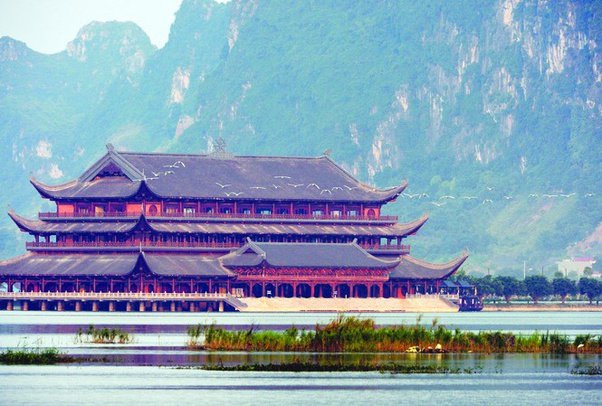
Of course, Vietnam shall never become a religious country with the western definition of religion. However, each of the Vietnamese always has their own beliefs/religions according to the Vietnamese culture. Most of the Vietnamese follow unintentionally at least one kind of belief, especially folk religion mixed or related to the teaching of Buddhism, Taoism, Confucianism. The small portion also follows some new religions like Caodaism, Hoahaoism, catholicism, Buddhism..etc.
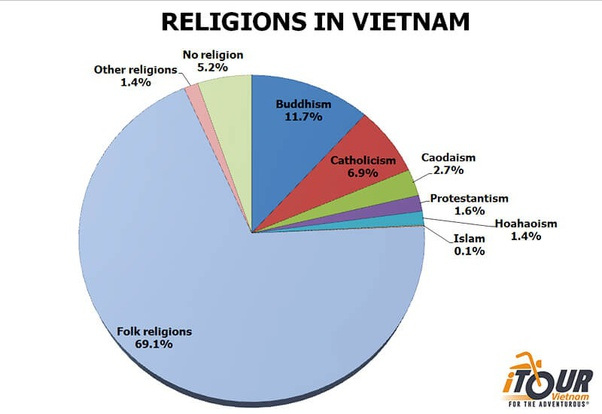
(Chart relating to religion in Vietnam)
Firstly , Among the Folk religions that combined Buddism, Taoism, Confucianism, You or even many of the Vietnamese shall not know what the religion they follow because the teachings of Buddhism, Taoism, Confucianism are osmotic deeply in the Vietnamese culture and each of the Vietnamese mindset. This kind of the Folk religion is not what you or anyone could see or express like other religions. However, you could see through the way of the Vietnamese thinking or making a decision.
Here are some kinds of expressing Folk religions in Vietnam
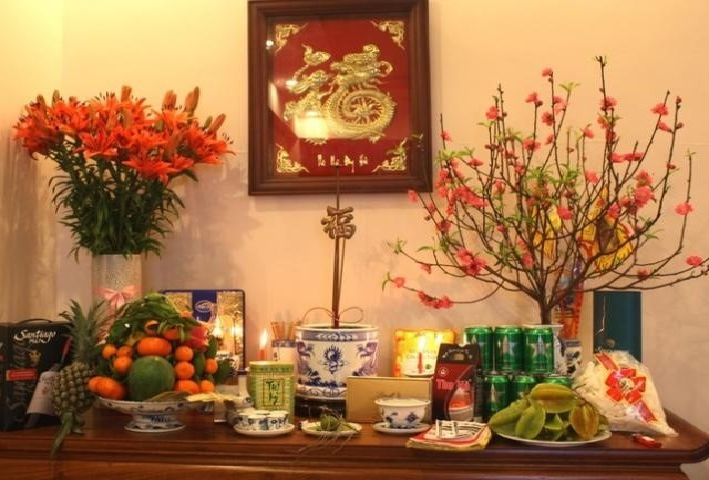
In each Vietnamese families, they often practice the worship of their ancestors and kitchen god, land god where they are living. Every year, they also celebrate the memorial events to remember their parents, grandparents who had passed away before.
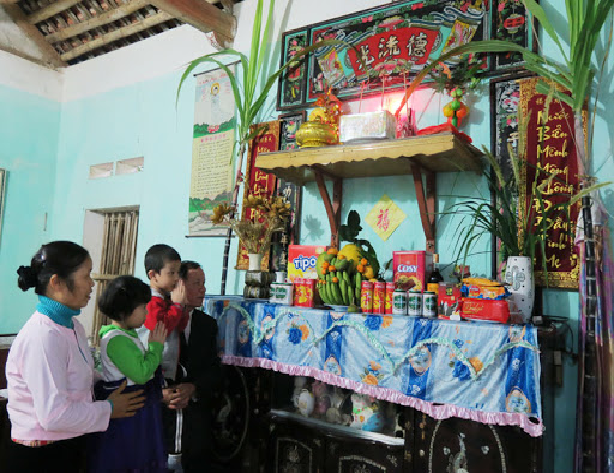
Why they worship their ancestor, especially their grandparents, parents who had passed away before? Do you think that their ancestors are God? Of course, No - They worship to remember their ancestor’s contributions who took care of them when they were children. It is not similar to worship God.
Like a family, the village in the mindset of the Vietnamese is similar to the kind of wide family. All villagers have lived together from generation to generation and also together overcome many difficult times. So each of Vietnam’s traditional villages, all Villagers often practice the worship of village’s Gods. Every year, especially the first month of the lunar new year, all of them gathered to hold the age’s festive and show respect to Gods of their village.
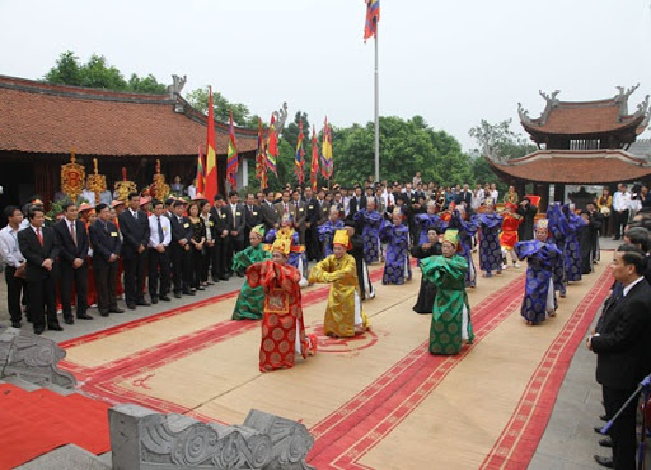
Of course, there are two kinds of Gods in each village or Vietnam. The first is the human Gods who have contributed to the establishment or protection of their villages a long time ago or anyone who has special contributions to their country. The second is the natural Gods like River God, Land God,…..etc
Like a village, a nation/country of Vietnam in the Vietnamese mindset is the same as the kind of wide village or very wide family. It explains Why the Vietnamese could sacrifice for the independence and freedom of their nation from generation to generation. Because with the Vietnamese, the before generations have their responsibility to protect or assure the life of their next-generation or their community. So, in this wide village or very family, they also worship the natural Gods and also the father of their nation (the ancestors of their country) - the Hung King or also other people who have contributed much to the protection of their country.
Here is one of many Temple for worshipping the Hung King - The father of Vietnam.
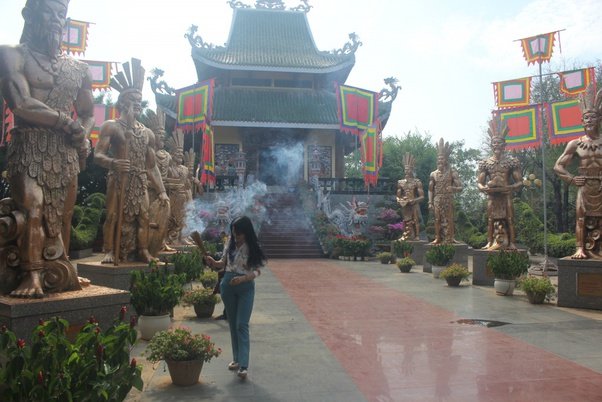
According to the Vietnam history, the Hung King who established the first Dynasty of Vietnam - The Hong Bang Dynasty around 2879 BC .
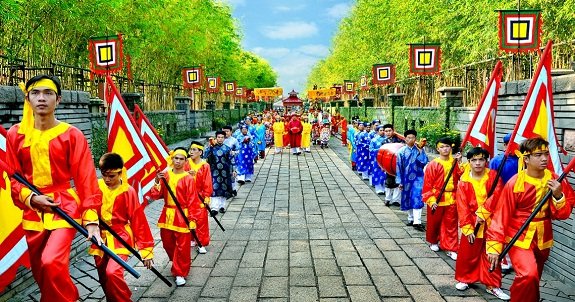
Every Year, the top leader of Vietnam who represents all of the Vietnamese shall worship the Hung King on 10, March at the Hung Temple in the first capital of Vietnam - Phong Chau, Phu Tho during the Hung King festival .
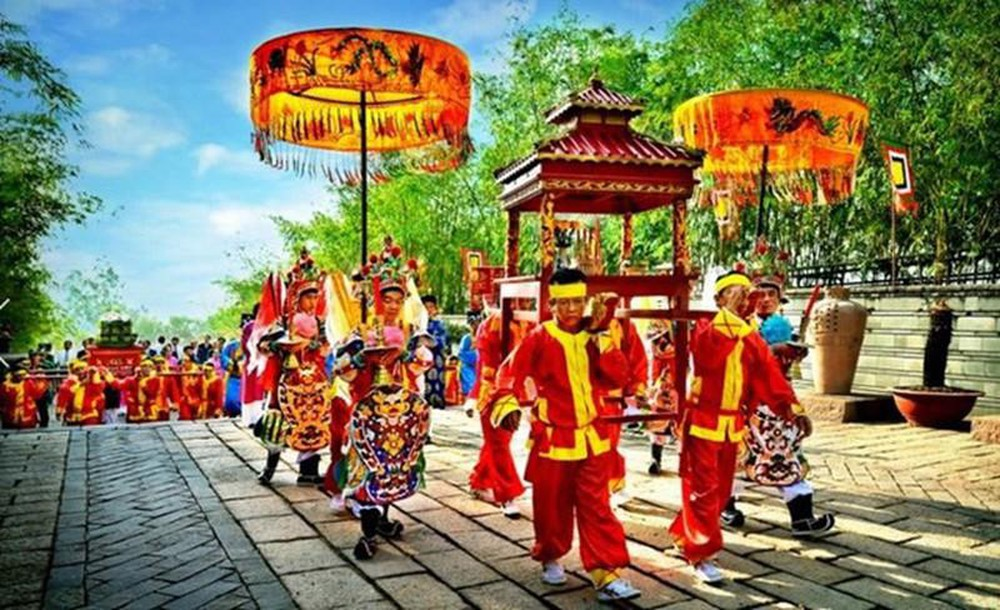
I think that the Hung King - The father of Vietnam and worshipping the Hung King every year during the Hung King Festival are the way for all of the Vietnamese commemorating the contribution of the Hung King rather than considering them as “Gods” like the Jesus God. The definition of God in Vietnam may be different much to other countries.
Here are the Temples of some people who contributed to the protection of Vietnam from ancient times to modern times.
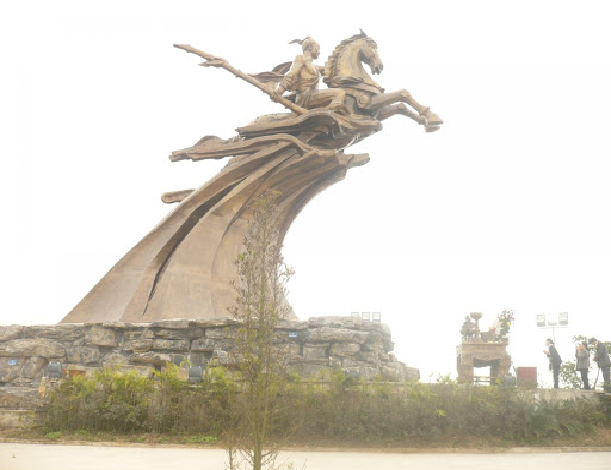
(The Saint Giong statute in Hanoi - Who contributed much to protection of Vietnam in the war against the Shang Dynasty - the Ancient China (1556 to 1046 BC))
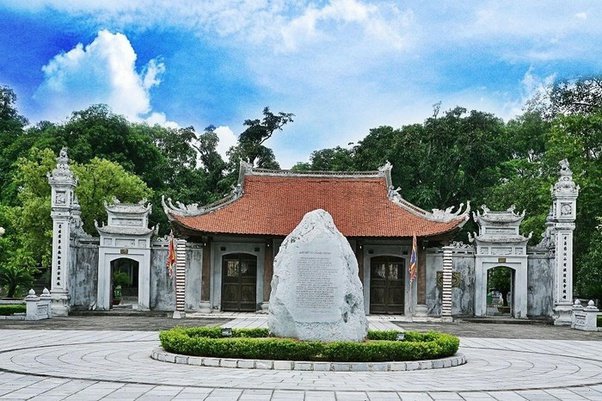
Temple of Mrs.Trung’s sisters who liberated Vietnam from Han dynasty of China from AD 12- AD 43
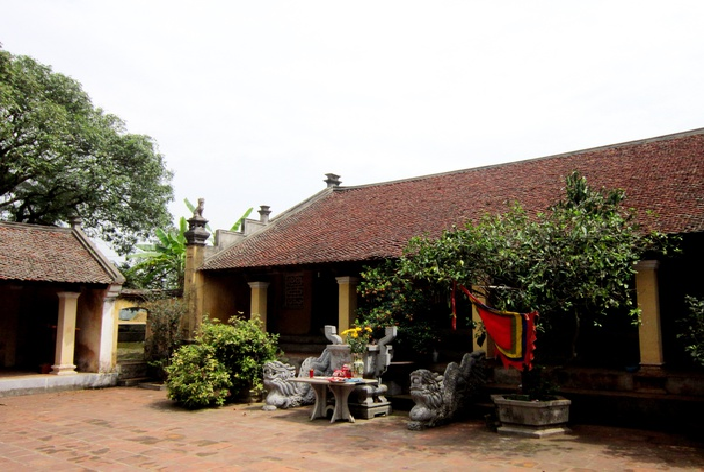
(Temple of Emperor Ngo Quyen who liberated Vietnam from China in 938 AD)
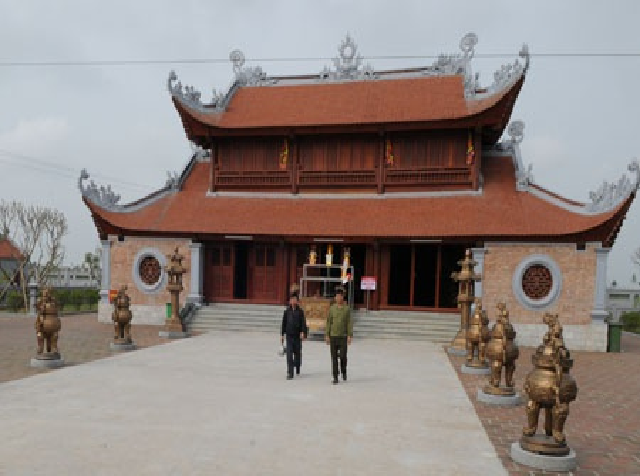
(Temple of Tran Hung Dao who defeated Mongolia Empire three times and protected Vietnam from 1257–1288 AD)
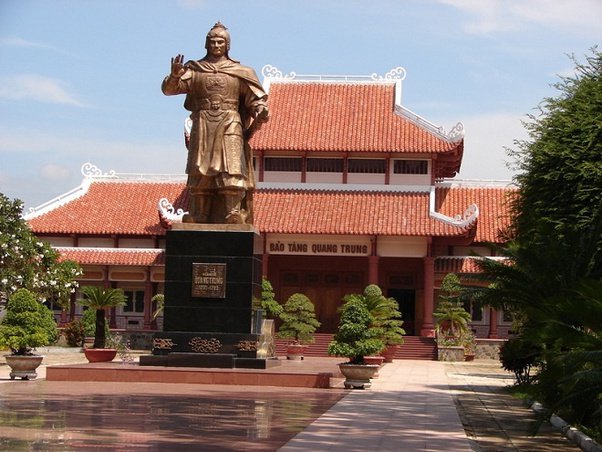
( Temple of Emperor Quang Trung-Nguyen Hue who reunifying Vietnam and also defeated Chinese invasion and Thailand invasion)
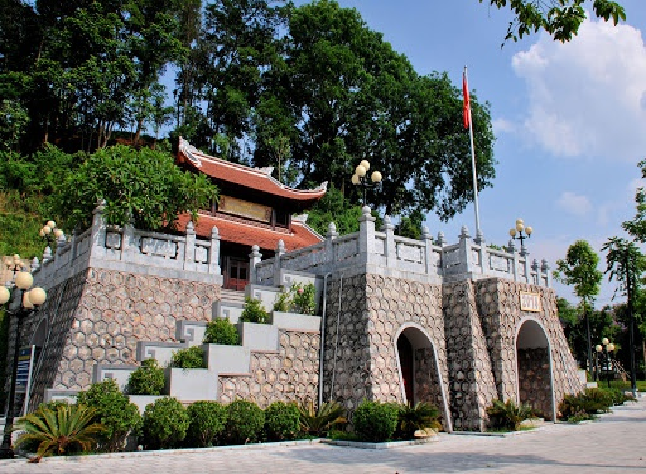
The Temple of Mr. Ho Chi Minh contributed much to the liberation of Vietnam from Japan, France, America. Some people often think that Mr. Ho Chi Minh has been worshipped similar to the Jesus God. But I think that they are wrong or tried to misunderstand the way of the Vietnamese worshipping Mr. Ho or other national heroes. In fact, they call Mr. Ho or others like the Great General Tran Hung Dao ..etc as God or Saint only because of commemorating their contribution, not really regard them as the real God like the Jesus/Buddha God.
Secondly , Buddhism and the teachings of Buddhists impact much on the Vietnamese culture. Unlike Taoism and Confucianism, Buddhism is still presently quite popular in Vietnam. Although many of the Vietnamese people are often considered them as ‘thesis”, they would still prefer to believe in Buddhism.
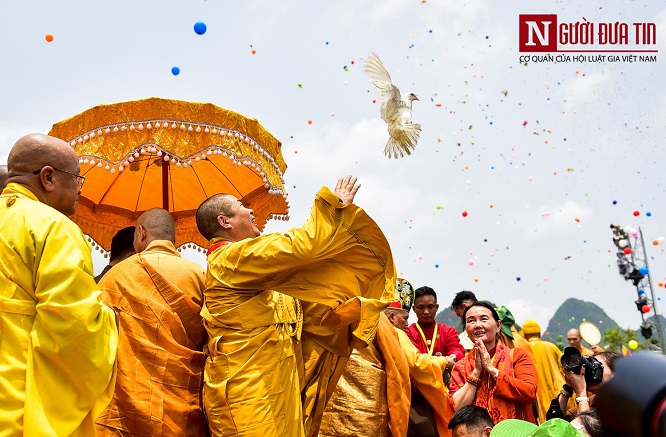
(the Buddist events in the Tam Chuc Pagoda)
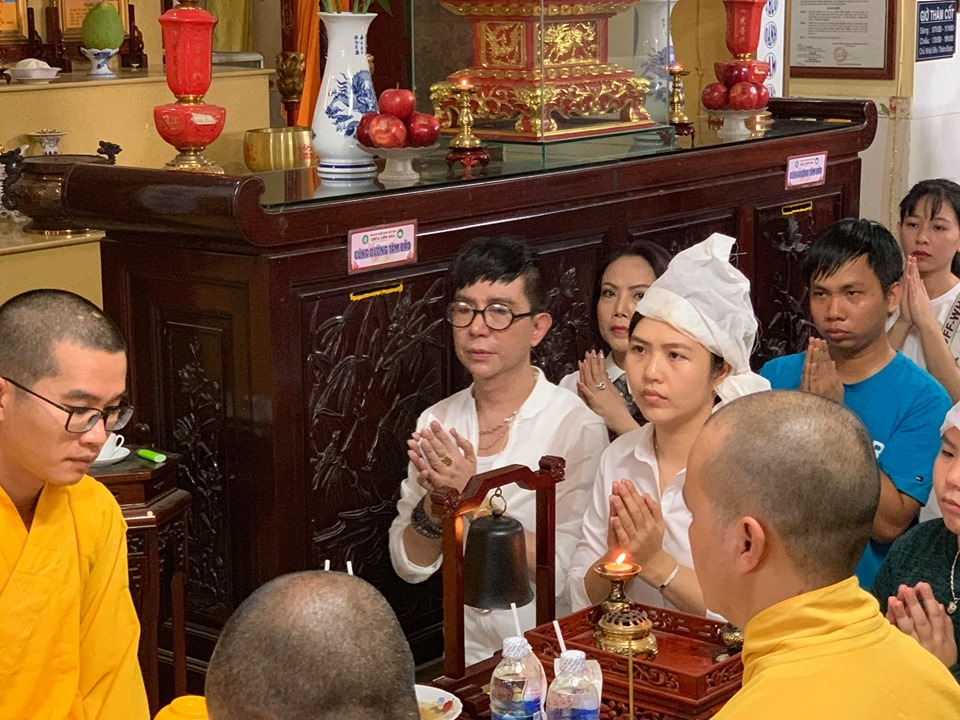
(the Vietnamese often invite monks to their relative’s funerals to help the soul of the dead person to go in peace)
Here some pagodas in Vietnam
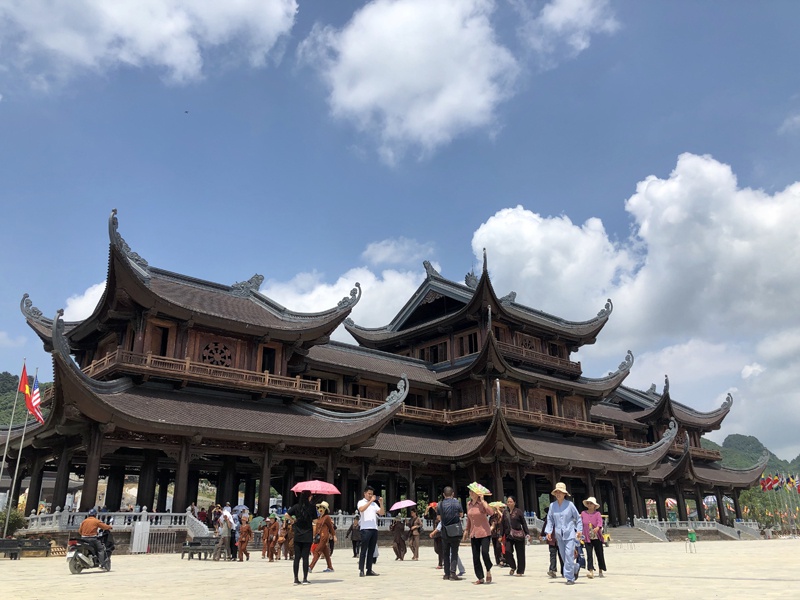
(Tam Chuc Pagoda, Hanam province, Vietnam)
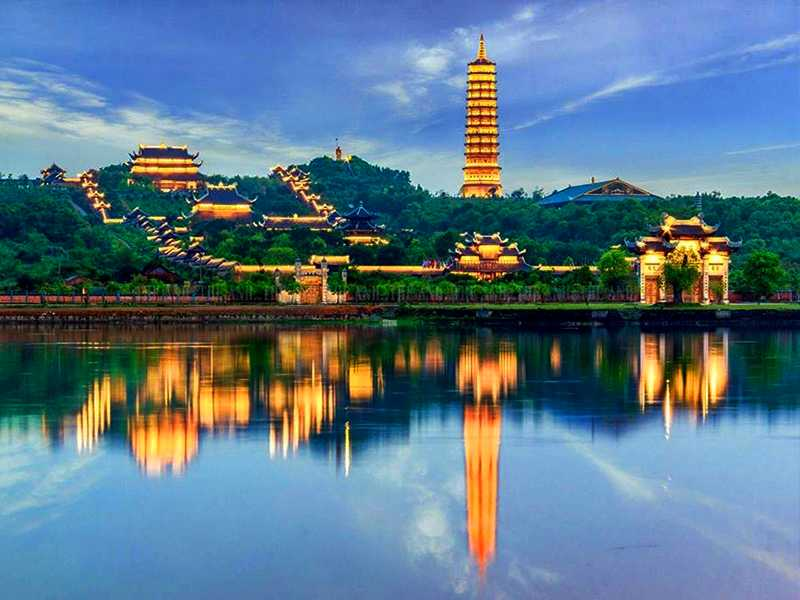
(Bai Dinh Pagoda, Ninh Binh province, Vietnam)
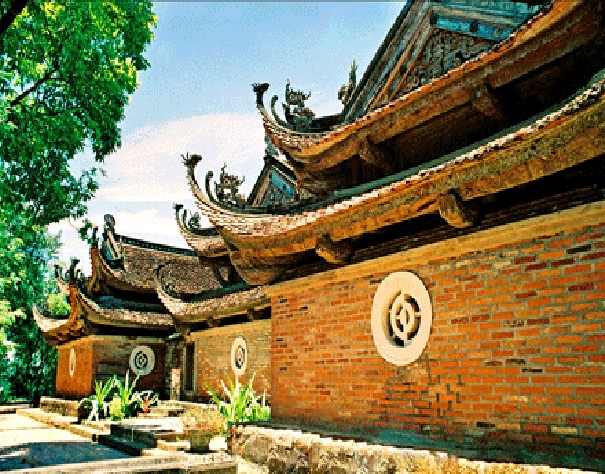
(Tay Phuong Pagoda, Hanoi city, Vietnam)
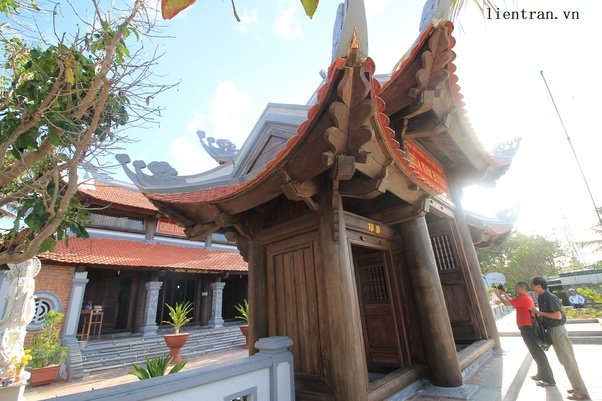
(Vietnam’s Pagoda in Spratly islands in the South China Sea, Vietnam)
Thirdly , some other religions in Vietnam.
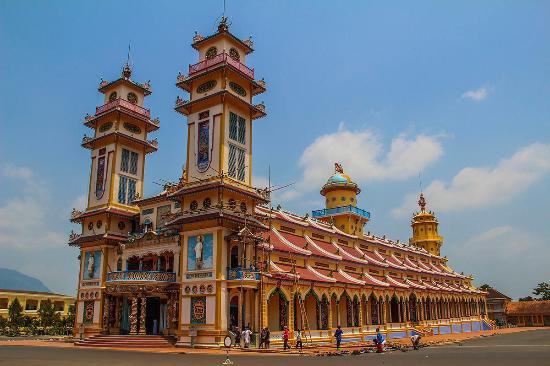
(Holy See of Caodaism in Vietnam)
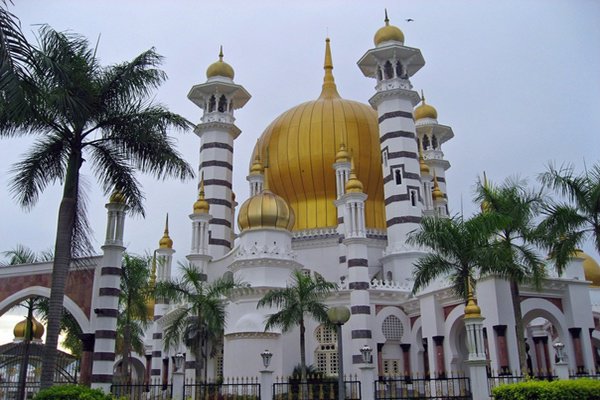
(Islam in Vietnam)
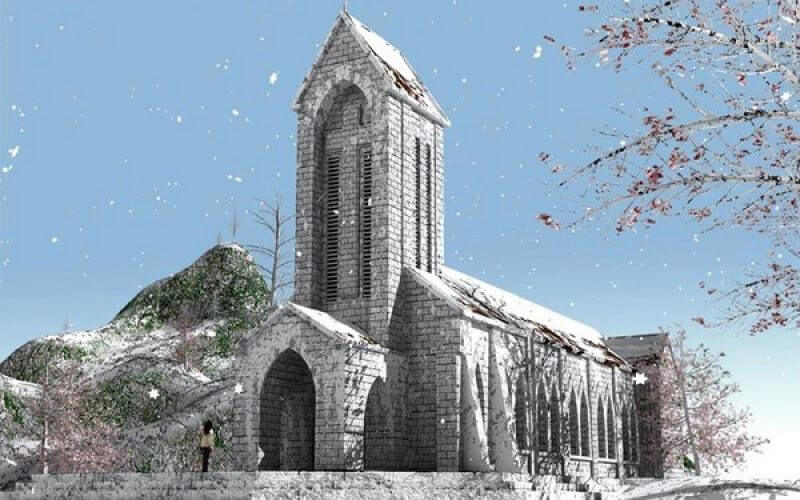
(Catholic church in Sapa,Vietnam)
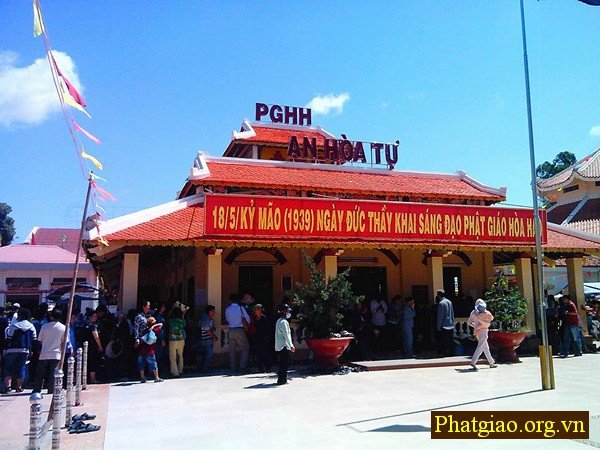
(Haohaoism church in Vietnam)
In conclusion : Although with the western definition of religion, Vietnam may not be a religious country. But for my perspective, Vietnam is a religious country in the Vietnamese way. The Vietnamese have their own belief system and contribute to the Vietnamese culture. This belief system is a part of not only Vietnamese culture but also the Vietnamese religion. Also, most of the Vietnamese are atheists but also not completely atheists as some of the western people think.
P/s: I write answers based upon the gist and requirement of the question. Readers are requested to read it with neutrality and rational approach. I throughout this answer has no intention of showing any disrespect towards any group of people or country.
All bests
Lusia Millar.

